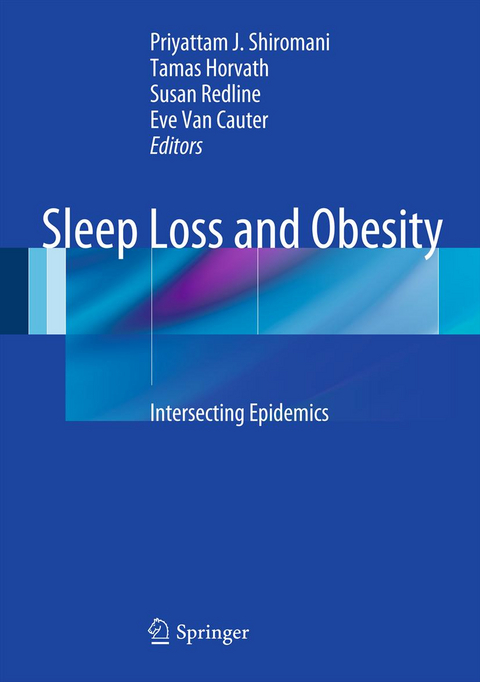
Sleep Loss and Obesity
Springer-Verlag New York Inc.
978-1-4614-3491-7 (ISBN)
Sleep Loss and Obesity: Intersecting Epidemics represents a major contribution to the field of sleep medicine. It is a comprehensive review of the neurobiology of sleep, circadian timing and obesity, the deleterious effects of sleep loss and obesity on health, and the worrisome associated social and medical costs in a range of patient populations and overall to society.
The number of individuals who are obese has reached alarming levels. As a result, the incidence of Type 2 diabetes, cardiovascular disorders, heart disease, and kidney failure have also increased. The surgeon general estimates that the total annual cost of obesity in the US is about $117 billion. This cost is expected to escalate significantly because the number of overweight and obese children is increasing rapidly. Indeed, the new generation is expected to have a shorter life-span then their parents. In addition, sleep loss is emerging as an important contributing factor to obesity. People who sleep less or are sleep deprived tend to eat more, especially carbohydrates, and have a higher body mass index. Increased weight restricts the upper airway, causing obstructive sleep apnea and further sleep loss. In the end there is a vicious cycle of weight gain and sleep loss.
In the past few years there has been a tremendous growth in our understanding of brain mechanisms controlling energy metabolism. Interestingly the neurons regulating waking also regulate feeding. There is also a mechanism that regulates the timing of feeding and sleep. In shift-workers this system is likely to be disturbed, and this has an adverse impact on both feeding and sleep.
Sleep Loss and Obesity: Intersecting Epidemics is the first title to clearly examine how obesity and sleep loss are interacting epidemics. This fascinating title makes the link between energy metabolism, sleep and circadian timing; identifies poor sleep as arisk-factor for obesity in children and adults and offers treatment strategies for obstructive sleep apnea and obesity. This book will be a vital source of information for all physicians interested in sleep disorders and obesity. It will also be of value to neuroscientists, health system administrators, and policy makers.
Circadian Clock Genes and the Regulation of Sleep.- Clock Genes and Energy Metabolism.- Neural Circuitry Underlying Sleep and Waking.- Feeding as a Reward Mechanism.- Plasticity of Brain Feeding Circuits in Response to Food.- The Neurogenetics of Energy Balance.- Short Sleep and Obesity in Children.- Circadian Misalignment and Sleep Disruption in Shift Work: Implications for Fatigue and Risk of Weight Gain and Obesity.- Sleep Apnea and Obesity.- The Connection Between Sleep Loss and Obesity.- Sleep Disturbances: Impact on Risk and Severity of Diabetes.- Insufficient Sleep and Cardiovascular Disease.- Clinical Guidelines for the Evaluation of Adults with Obstructive Sleep Apnea.- Pharmacological Treatment of Obesity.- Bariatric Surgery for Treatment of Obesity.
| Zusatzinfo | XIII, 251 p. |
|---|---|
| Verlagsort | New York, NY |
| Sprache | englisch |
| Maße | 178 x 254 mm |
| Themenwelt | Medizinische Fachgebiete ► Innere Medizin ► Endokrinologie |
| Medizinische Fachgebiete ► Innere Medizin ► Pneumologie | |
| Medizin / Pharmazie ► Medizinische Fachgebiete ► Neurologie | |
| Medizin / Pharmazie ► Medizinische Fachgebiete ► Psychiatrie / Psychotherapie | |
| Naturwissenschaften ► Biologie ► Zoologie | |
| ISBN-10 | 1-4614-3491-2 / 1461434912 |
| ISBN-13 | 978-1-4614-3491-7 / 9781461434917 |
| Zustand | Neuware |
| Haben Sie eine Frage zum Produkt? |
aus dem Bereich


